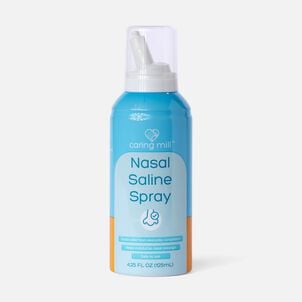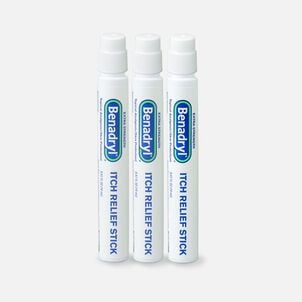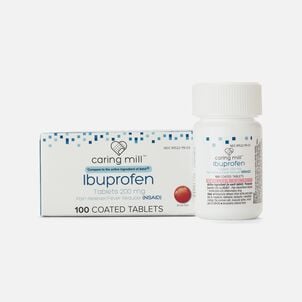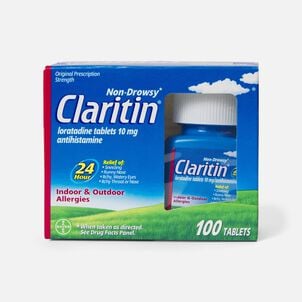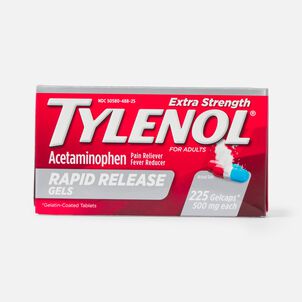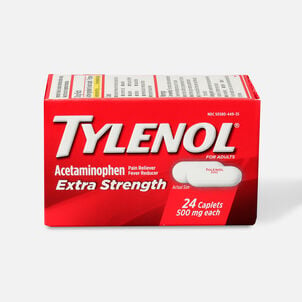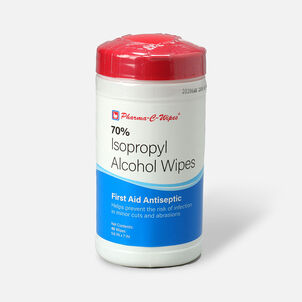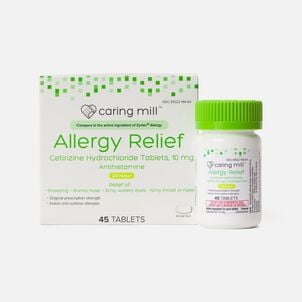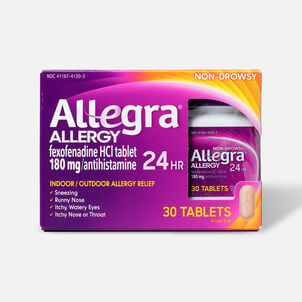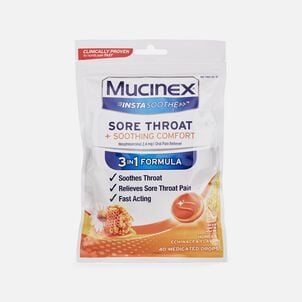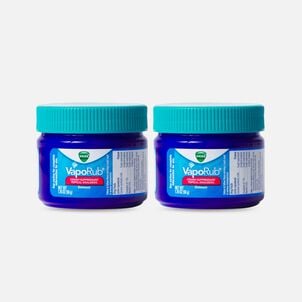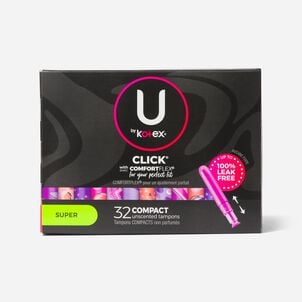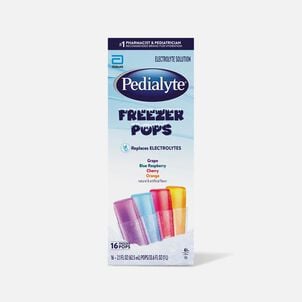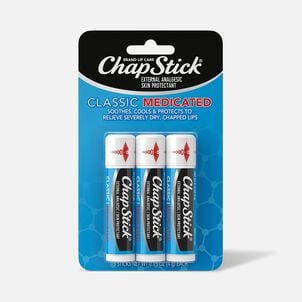Sneezing, runny nose, and itchy eyes — these are all tell-tale signs of allergies, and whether you experience them seasonally or year-round, they can make you feel pretty miserable. Fortunately, there are many different types of allergy medications to help keep your symptoms in check.
However, with all the choices of allergy medicine that are available, there’s a chance you could be taking the wrong one and not getting the relief you need. Read on to learn more about allergies and what you can do to make sure you’re getting the right treatment.
How long do allergy symptoms last?
Allergy symptoms can last anywhere from a few hours to several months depending on what’s causing them and how they’re treated. For some people, allergy symptoms only appear at certain times of the year but may last for a few months — called seasonal allergies. For others, they can be year-round — called perennial allergies. People with seasonal allergies usually refer to the times when they experience symptoms as “allergy season.”
Seasonal allergies tend to be most troublesome in the spring and fall. Depending on where in the U.S. you live, spring allergy season can start as early as February and last into the beginning of summer. On the flip side, fall allergy season usually lasts from August to October, with mid-September being the roughest time.
Causes of Allergies
Allergic rhinitis, more popularly known as hay fever, refers to symptoms that affect the nose. This is caused by environmental allergens, including:
- Pollen from trees or grass
- Dust in a house
- Mold
- Pet hair
Certain foods that you might be allergic to can also trigger an immune response — but they rarely lead to perennial allergies.
Common Allergy Symptoms
While allergy symptoms may vary from person to person, the most common ones include:
- Itchy eyes or skin
- Sneezing
- Runny nose
- Watery eyes
Your OTC allergy meds guide
Antihistamines
As one of the most common OTC allergy medicines on the market, what antihistamines do is right in the name: they fight back against histamine. According to the Mayo Clinic, histamine is a chemical that is created in the body when it comes in contact with an allergen. Producing histamine is the body's immune response to allergens, which results in common allergic reactions like sneezing, sniffling, watery eyes, breaking out in hives and more. Antihistamines reduce the production of this chemical to ward off the most common symptoms of allergies.
When should I use antihistamines?
Antihistamines are a great choice during allergy season, but some may have side effects that could change how and when they are used. Some antihistamines are known to make users drowsy or tired, so always check for proper dosage and side effects when taking this medication, as well as considering the types of activities you will engage in after taking it. Antihistamines are available in pills, nasal sprays, eye drops and more.
Common Over-the-Counter Antihistamines:
Decongestants
Decongestants are often used in tandem with antihistamines to combat a wide range of allergic symptoms and can provide allergy relief for congested nasal passage ways, but they are also sold as stand-alone medications to relieve nasal congestion. But according to WebMD, decongestants work by combating the body's immune response to swell when coming into contact with an allergen, and this typically can happen in the nasal passages that can result in feeling "stuffed up." By reducing this swelling, nasal passages can clear and decongestants can aid in treating seasonal and year-round allergy symptoms.
When should I use a decongestant?
When it comes to a stuffy nose and swollen nasal passages, decongestants are the best choice and are available in pills, liquids, nasal sprays and nose drops. As opposed to antihistamines, decongestants can sometimes leave users jittery or may experience trouble sleeping, so if this continues, speak with a doctor about your treatment options.
Common Over-the-Counter Decongestants:
- Afrin and Dristan(oxymetazoline)
- Sudafed PE, and Suphedrin PE (phenylephrine)
- Silfedrine, Sudafed, Suphedrine (pseudoephedrine)
Corticosteroids
Corticosteroids are another type of allergy medicine that is designed to fight inflammation to alleviate allergic reactions. According to Healthline, Corticosteroids are medications designed to emulate cortisol, a hormone naturally produced by the body's adrenal glands. Cortisol plays a vital role in a wide range of processes in the body, including metabolism, immune response, and stress. These medications are primarily used in treatment for respiratory allergies like asthma but are effective in preventing and relieving stuffiness, sneezing, and runny noses.
When should I use corticosteroids?
The vast majority of corticosteroids are only available as a prescription medication, and are used to treat a variety of conditions aside from allergies, including asthma and arthritis. For allergy sufferers, corticosteroids are primarily used to fight inflammation in the body caused by the immune system's response to coming in contact with an allergen. Corticosteroids are available in pills, nasal sprays, inhalers, skin creams and more.
Common over-the-counter corticosteroids:
- Cortizone (hydrocortisone)
- Rhinocort (budesonide)
- Flonase Sensimist (fluticasone furoate)
- Flonase Allergy Relief (fluticasone propionate)
- Nasonex (mometasone)
- Nasacort Allergy 24 Hour (triamcinolone)
How long will it take for my allergy medicine to work?
When you’re experiencing allergy symptoms, you want to feel better — and fast. But because each product works differently and treats specific symptoms, it’s important that you select the allergy medicine that will help you the most.
If you’re looking for fast congestion relief, oral and nasal decongestants can start working in 15 to 30 minutes.
Antihistamines usually start working within 1 to 2 hours, depending on the product you’re taking. You can also find antihistamine nasal sprays like Astepro (azelastine), that work in as little as 15 minutes.
Nasal steroids, on the other hand, take the longest to provide a benefit — sometimes even a few weeks. That’s why they’re better for symptom prevention instead of treating symptoms as they happen.
What's the best choice for me?
Over-the-counter allergy medicines, especially now that they're HSA eligible, are an effective means of treating seasonal and chronic allergies year-round and can help get symptoms under control. But, no two allergic reactions are alike, and your treatment plan for allergies is uniquely your own. We advise that before beginning any OTC medication regimen, speak with your doctor to learn about the full extent of your allergies and underlying health to find the medication that works for you — especially if you find that your current allergy medicine is not working.
The vast majority of allergy medicines on the market today are only available by prescription, and some targeted therapies are only available with a prescription from a doctor. Products such as leukotriene modifiers (Singulair) and emergency epinephrine shots (EpiPen) are only available with a prescription from a doctor and treat allergic reactions in specific, targeted ways. It may be possible that these options are a better choice to treat your allergies, so it's always best to start any treatment plan by consulting your doctor.
Finally, your current state of health also dramatically impacts what sort of treatment plan you or a loved one should pursue to treat your allergies. According to the Mayo Clinic, chronic health conditions, being pregnant or breastfeeding, age and taking other medications should be factored into any treatment plan, so these are important factors to bring up with your doctor when going in for a visit to talk about which are the best over-the-counter allergy meds for you and your family.
Now that OTC medicines are fully HSA eligible, you have more options than ever to take advantage of your tax-free healthcare funds. If you or a loved one are still dealing with daily allergy symptoms, your HSA may just be a helpful tool on your path to allergy season relief!
-
Thank you for visiting the HSA Store Learning Center. Don’t forget to follow us for more helpful tips on Facebook, Instagram, and Twitter.
 |
| 




